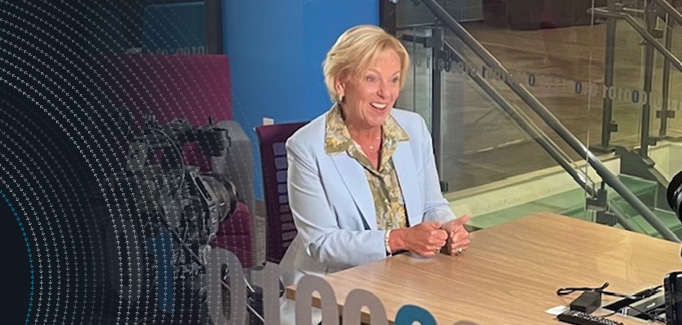The world of communications surveillance is evolving faster than ever. Regulators are tightening oversight, communication channels are multiplying and organizations are facing growing volumes of data that few are fully equipped to manage. In this rapidly changing environment, relying on isolated monitoring and static controls is no longer sufficient.
In today’s interconnected world, money moves at the speed of light, with fraud following close behind. Across global banking, commercial and corporate clients are facing a new wave of sophisticated financial crime. Authorized scams, synthetic identities, deepfake impersonations and real-time payment hijacks are no longer isolated incidents but are intricate parts of a fast-evolving fraud economy powered by technology.
Exclusive interview with Amy Brady, Chief Information Officer, KeyBank
We’re proud to announce that Chartis Research has named NICE Actimize a Leader in Communications Monitoring in its 2025 Surveillance Platform Solutions Quadrant Update — recognizing our continued innovation and excellence in AI-powered compliance technology.
The Financial Conduct Authority (FCA) this week issued some significant concerns around market abuse, with a particular focus on how market soundings are conducted.
In August 2025, the Financial Crimes Enforcement Network (FinCEN) issued a critical advisory (FIN-2025-A003) spotlighting a growing and sophisticated threat: Chinese Money Laundering Networks (CMLNs). These networks have become deeply embedded in global financial crime, forming strategic alliances with Mexican drug cartels to facilitate complex laundering schemes that span borders and industries.
At NICE Actimize ENGAGE 2025, a clear trend emerged among community banks, credit unions and FinTechs: most institutions are operating with lean Fraud and Anti-Money Laundering (FRAML) analyst teams, often composed of just 2 to 7 members. Despite their size, these teams are navigating increasingly complex financial crime threats—and doing so with remarkable agility, thanks to the strategic integration of artificial intelligence.
In today’s rapidly evolving financial landscape, combating financial crime requires a unified approach that bridges the gaps between data, technology and operational processes.







